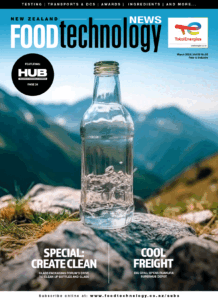
By Dr Jocelyn Eason, general manager of Food Innovation for Plant and Food Research
In Aotearoa New Zealand, different regulations govern foods, natural health products (including dietary supplements) and medicines. This regulatory approach to the various products affects the health claims that can be made about them.
Food Standards Australia New Zealand (FSANZ) regulations govern health claims for foods and supplemented foods. This applies to food labels and advertisements about the nutritional content and health effects of food products. To support health claims for foods or supplemented foods, suppliers need to use pre-approved claims or provide scientific evidence (a self-substantiation dossier).
While these regulations apply to foods and supplemented foods, they do not apply to health products. Natural health products and dietary supplements fall under different regulations – the Dietary Supplements Regulations 1985. At present, there is no claim framework for these, apart from restrictions on therapeutic claims.
These differences in regulatory approaches result in quite different, and somewhat confusing, claims on products. For example, on natural health products you will often see ‘boosts the immune system’. However, on a food you cannot refer to enhancement of function, so the claim tends to be ‘supports a healthy immune system’. On a supplement, the claim can be for the product as a whole, but for a food, it must relate to specific nutrients from a pre-approved list (unless a self-substantiated claim is developed).
By comparison, in Australia, Canada, the EU and the UK, manufacturers can make health claims about natural products only if they can substantiate their claims through scientific or recognized traditional evidence. Consumers in these places can then be confident that the product information they are receiving is genuine.
Over the last decade, there have been attempts to introduce regulations in Aotearoa for natural health products (to include products like traditional herbal remedies and vitamin and mineral supplements). In 2021, Cabinet made the decision to regulate natural health products under a Therapeutic Products Bill, although they will have their own regulations. These new regulations are expected to be introduced to Parliament later this year. This will help bring foods, products and supplements more in line with each other in terms of the health claims that can be made for them.
Dr Jocelyn Eason has a PhD in Plant Physiology from Otago University and an MBA from Massey University. In her current role, Dr Eason manages Plant and Food Research’s Food Innovation Portfolio, which includes teams that investigate human responses to food, the influence of food on human nutrition and wellness, and the production and supply of nutritionally rich foods.
The information and opinions within this column are not necessarily the views or opinions of Hot Source, NZ Food Technology or the parent company, Hayley Media.


































































































